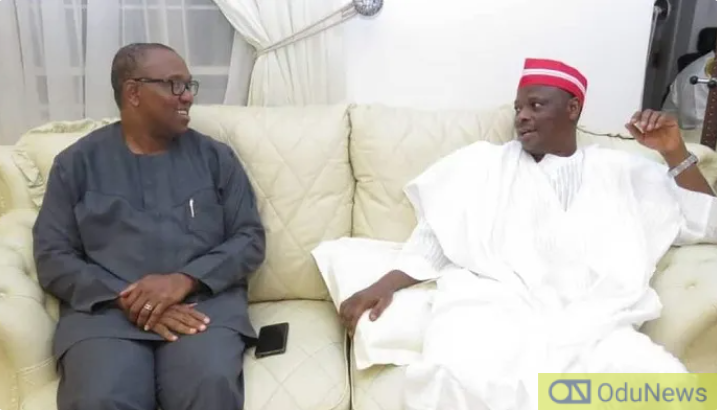Wrestling power from the ruling party has always been a herculean task anywhere in the world, it takes enormous political planning and alignment. As the 2023 general election draws close in Nigeria, there have been schemes by political parties to unseat the APC-led government. This has however come with its pains and pangs.

When the All Progressives Congress unseated the Peoples Democratic Party at the helms of affairs, it was carried out in a grand style. Different political parties across all the geopolitical zones merged. Individuals that make up the party had differing ideologies but the collective willpower of the opposition made these ideologies secondary. Although the APC has failed to keep to its electoral promises, the unifying agenda pushed then was that the party was formed with the intent of making Nigeria better. Lots of political heavyweights suppressed their egos to achieve the party’s aim of securing power.
The Labour party and the New Nigeria Peoples Party, albeit less grande, have the same agenda as the parties that formed the APC. The obvious difference is however the lack of a common goal. Each wants to rule the country and their teeming supporters will not easily settle for the running mate position. Rabiu Kwankwaso and Peter Obi, former governors of Kano and Anambra states respectively are eminently qualified to be the merger’s flagbearer. As the election moves closer, the success of a merger continues to fall apart.
Supporters of Kwankwaso would base their premise on his experience as an executive governor and as a renowned lawmaker. He was a former Deputy Speaker of the House of Representatives, a former Senator and also an ex-Minister. He possesses ardent followership with his famous Kwankwassiyah movement. His support base is however largely restricted to the northern part of the country. A major point being raised against his presidential ambition is the region he comes from. President Muhammadu Buhari would have ruled for 8 Years by 2023 and seeing another northerner taking that seat will not seat well with many Nigerians from the southern region. Such is a valid reason for Kwankwaso to ‘suspend’ his presidential ambition and become Peter Obi’s vice president. Their promise of a better and new Nigeria devoid of tribal and religious favouritism will however be questioned if proponents of such a society are being elected based on their tribe. If One Nigeria is the mantra, then any Nigerian can contest.
Peter Obi’s current wave of supporters should not surprise many who have followed the political history of the former Anambra state governor. He has always portrayed a pro-people face. He is not one of the politicians who ooze pride when speaking. He is a likeable and fine politician. That does not negate his fallibility as that appears to have been the major point of those against his presidency. Many see him as being different from the Nigerian political class but that is not the case. Like the ‘regular’ Nigerian politician, he has made promises he did not fulfil. Despite this, he appears to have a practical template for how to turn the fortunes of the country around. He has arguably granted more interviews about his plans for the country than any other presidential candidate. Obi’s South East zone is yet to produce the country’s president since its return to democracy over 20 years ago. This coupled with his economic dexterity makes him a near-perfect fit for the country’s presidential role.
One thing is clear, Peter Obi, would not succumb to being Kwankwaso’s running mate and if he does, he could lose some of his supporters. The same applies to Kwankwaso who has even claimed that the northerners would find it difficult to vote for a candidate from the South East region. Nigeria has, ab initio, been divided across ethnic and religious lines, the 2023 presidential election would show the depth of this division. That could be salvaged if a merger should take place between the LP and NNPP. If that should happen, Peter Obi deserves to be given the Presidential ticket.


Comments are closed.